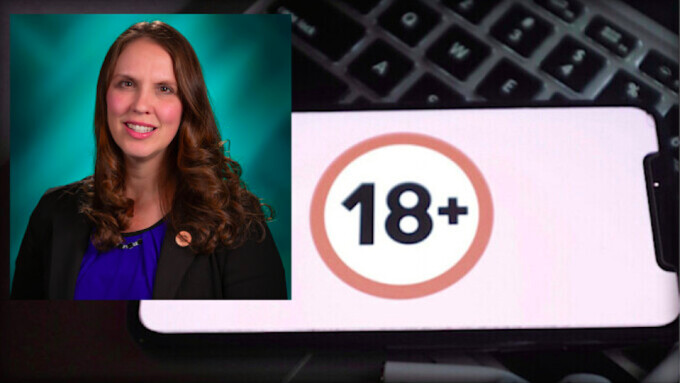MESA, Ariz. — Republican legislators in the Arizona House broke ranks with a fellow GOP representative on Wednesday and helped reject her copycat proposal to implement default “porn filters” on phones and computers sold in the state.
The state bill was introduced in January by Representative Michelle Udall (R-Mesa), a devout Mormon who is also currently running for Arizona Superintendent of Public Instruction on a platform of fighting against “school closures, contentious mandates and critical race theory.”
House Bill 2115 “would have held companies criminally liable for selling any computer, smartphone or tablet in Arizona without a filter to block children from accessing ‘harmful content,’” the Arizona Mirror reported.
Udall’s copycat bill “would have allowed parents to sue anyone who helps their child bypass the internet filter,” though an amendment was added to it “to ensure that such lawsuits could only be filed against adults, and not other children,” the report noted.
HB 2115 died, however, when it was rejected by a legislative committee on a 3-7 vote. Three Republicans voted in favor of Udall’s initiative, but other GOP legislators' votes against the measure were crucial in defeating the bill, which copied a 2021 law passed in Utah.
The GOP representatives who voted against it “cited their belief that the bill was government overreach, despite their concerns about pornography and the tech industry,” according to the Mirror.
'A Matter of Parental Choice'
Tech industry reps spoke before the committee, to oppose Udall’s bill.
“Instead of government mandates, we should have stakeholders come together to figure out how to best figure out how to use these tools to protect children,” Lisa McCabe of the Cellular Telecommunications Industry Association told the Arizona legislators. “I think it is a matter of parental choice.”
Leading anti-porn lobbying group, the religiously-inspired NCOSE — formerly known as Morality in Media — used part of its growing war chest to try to convince legislators to support the measure.
Seemingly confusing pornography with obscenity, one of the NCOSE-supporting legislators, Rep. Neal Carter (R-Queen Creek) overtly called for the reinstitution of active obscenity prosecutions, claiming that “pornography is not protected speech, and once upon a time the United States used to prosecute pornography. It is absolute the providence of this state to regulate pornography.”
Regardless of Carter’s outburst conflating illegal obscenity with free speech pornography, longstanding jurisprudence has established that the latter is indeed protected by the First Amendment.
But Rep. Jacqueline Parker (R-Mesa) said, “Right now, their software is filtering porn. Who knows? Tomorrow, it could be filtering conservative material.”
War on Porn crusaders have been attempting to move forward with copycat bills in other states since Utah Governor Spencer J. Cox signed the nation’s original “mandatory porn filter” bill into law in March 2021.
That bill only passed after it was amended with the odd mandate that it “will not go into effect until five additional states have adopted similar language. It gives a 10-year period for that to occur,” the Salt Lake City Fox affiliate reported in February 2021.
Main Image: Rep. Michelle Udall (R-Mesa) (Source: Official portrait)








